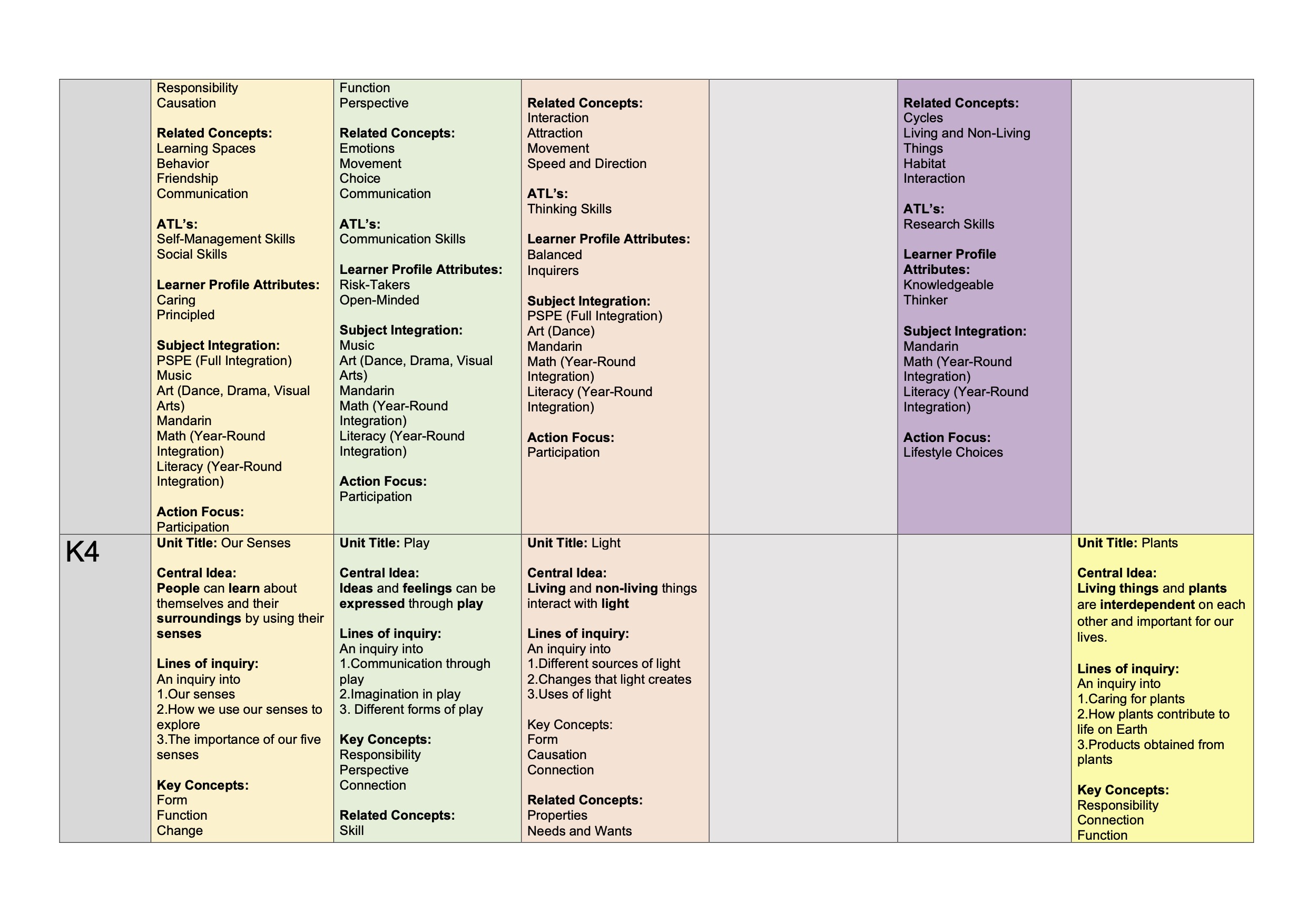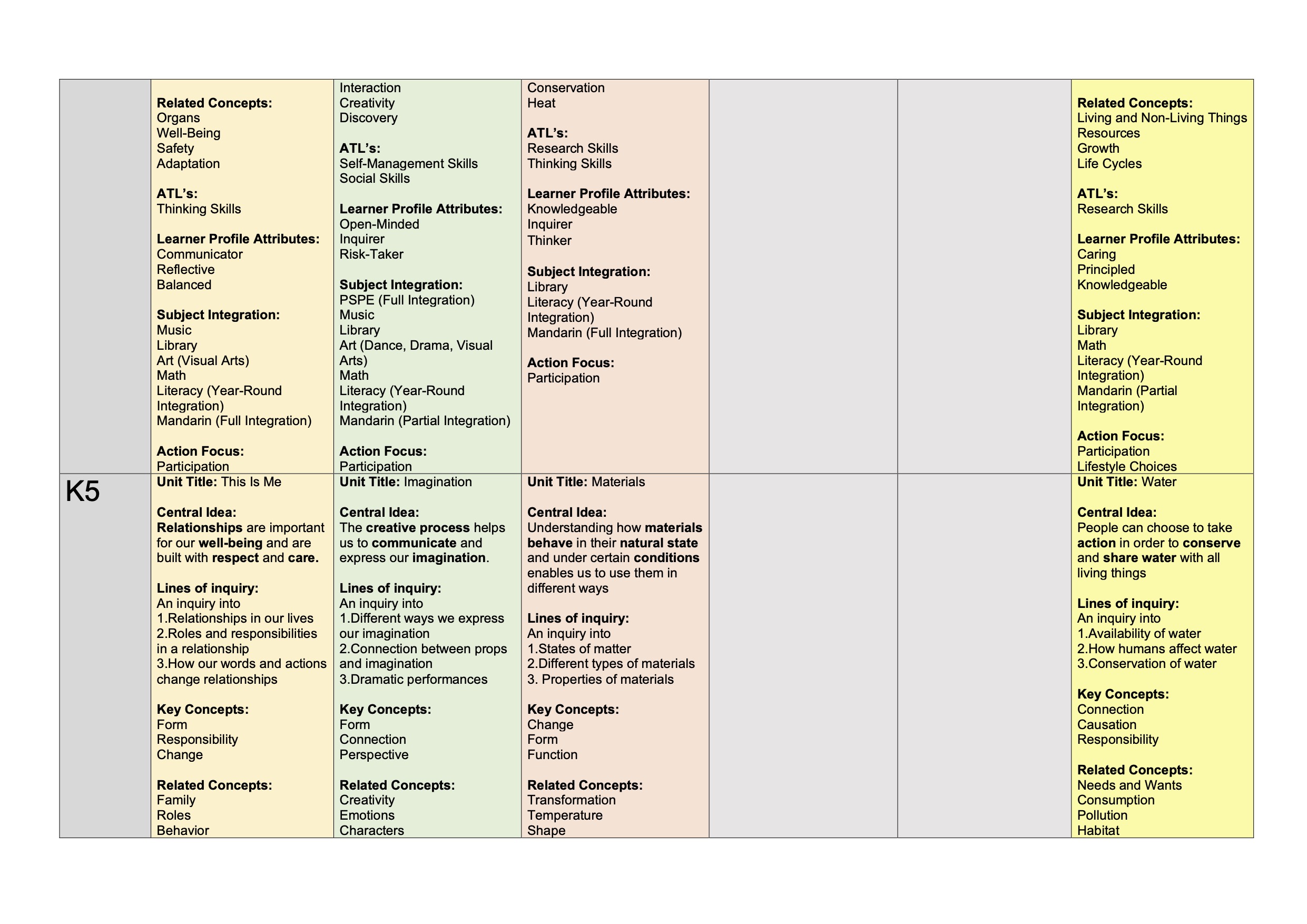
The idea of inquiry is central to the EY/PYP approach to education. After all, “children are natural inquirers from birth; they have the capacity to learn about, interact with and interpret the world around them.” (The Learner, 2018). By focusing on how children naturally learn through interacting with their environment, students in the EY program become active participants in their learning, are provided more student agency and approach learning with more enthusiasm. Ultimately, inquiry deepens the complexity of their understanding and provides the development of essential skills that lead to becoming life-long learners.
Inquiry in the EY program takes on different forms depending on the intention of a particular learning engagement. Students in the EY program benefit from guided inquiry. This allows teachers to support students in developing and constructing more complex understandings of the world around them (Hmelo-Silver, Duncan, Chinn, 2007). Teachers collaboratively plan learning engagements that allow students to inquire with intention. Another key component of inquiry in the EY, is the reflection that happens throughout the learning process. It is through reflection that students develop deeper understanding and gain more agency in their own learning (Audet, 2005). As inquiry allows students to become more interactive in their learning, they develop key skills that will support their continued success throughout their educational journey.
Children are natural inquirers from birth; they have the capacity to learn about, interact with and interpret the world around them. - The Learner, 2018
The IB program is a continuum and as our youngest learners move through the PYP, MYP and onto DP, it is the solid foundation in an inquiry-based EY that will support them. Students will be entering a world vastly different from the one we currently experience. Their jobs are unknown as well as the challenges they will need to overcome. When students enter ISNS in K3, they start to develop the skills needed to face tomorrow’s challenges. Through inquiry and consistent reflection, students learn how to self-manage, solve problems, find relevant information, communicate their ideas, work together to become socially aware citizens who can advocate for positive social change. Inquiry promotes students to take action on their learning and to become life-long learners.
-Thomas Tucker, Lower PYP Principal
PROGRAMME OF INQUIRY


